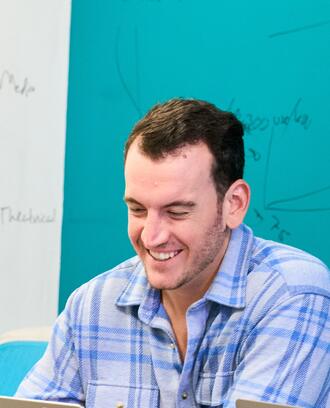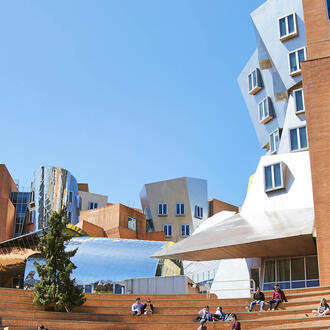MBA
Sustainability
Sustainability Beyond Sloan
By
Such was the headline this week. Growing up in an age when virtually anything is a swipe away from two-hour delivery has allowed us to live a life of unprecedented convenience. I’m certainly guilty of this. My last NYC apartment lobby was a constant carousel of Seamless, Postmates, and UPS deliveries… And let’s just say that the mailroom manager definitely knew how to spell my name.
At scale, this relentless demand for convenient, cheap goods has resulted in more than 330 million metric tons of plastics being produced annually, most of which is created for single-use products. Further, only about 9 percent of plastics is recycled – a brow-raising statistic considering that plastic requires more than 400 years to degrade, according to National Geographic.
Fortunately, this awareness has become more front-of-mind for leading consumer goods companies, some of which view this as an opportunity to change consumer behavior. This spring, Patagonia – the MBA-beloved outfitter – put forth this real-life challenge as the prompt for its annual case competition: how can they scale solutions that lessen the environmental impact of single-use packaging in their food and apparel businesses by 2025? And, perhaps just as importantly, how can this solution be rapidly scaled across these industries? The 22-page case brief indicated that this experience would be more than your run-of-the-mill MBA case competition. Fortunately, it was also a question that individually resonated with the six of us on the “nourishMIT” team representing MIT, which culminated in a six-month collaboration presented at the Haas School of Business in Berkeley, California in April.
Collectively, we represented five different programs across MIT: Audrey Bazerghi (MBA ’20 & SM in Civil Engineering), Cherry Gao (PhD in Biological Engineering), Jordan Landis (MBA ‘20 & SM in Mechanical Engineering), Cristina Bleicher (MBA ‘20), Ellena Kim (MBA ‘20), and Ty Christoff-Tempesta (PhD in Materials Science and Engineering). Our team’s sustainability expertise ranged from someone who had most recently worked at a food distribution start-up in Rwanda to a marine biologist studying how ocean microbes affect the Earth’s biogeochemical cycles. As you’ll come to experience, cross-departmental collaboration is highly encouraged at MIT, and they’re enriching opportunities worth taking advantage of during an MBA’s two years at Sloan.
The Patagonia case competition was structured into two phases: round one required a written submission from all interested teams, and round two invited ten finalist teams to Berkeley-Haas to present their solutions in person. In light of the more than 120 teams globally which submitted written proposals in round one, we were ecstatic to be selected as one of the ten finalists. Our proposal was a hybrid solution focused on cost-effective and timely biodegradation of apparel polybags and everyday food packaging.
In a way, our six months of work resembled an MIT Sloan action learning boot camp: we set team norms and individual priorities, dug into the technical fundamentals, theorized and tested ideas, theorized and tested again in our imagined Patagonia context, wrote – deleted – re-wrote, and PDF’d the “FFF FINAL” version for submission right before the deadline.
For the final round, we needed to deliver a 10-minute presentation and field 10 minutes of Q&A. Our preparation here is probably best captured by the phrase “Sloanies Helping Sloanies.” One classmate with experience in the retail sector provided invaluable feedback on the operations of managing a retail supply chain. Another classmate (#kenny) helped elevate our visuals to the next level and emphasize succinct storytelling. Classmates and faculty members graciously lent their time to listen to our pitch. When we boarded the plane to California, we were ready, nervous and excited. When we boarded the plane back home, we were fortunate enough to bring MIT’s first win in this competition with us. We believe this is a reflection of the MIT community on whole: one that is endlessly generous, committed to excellence, and driven to act on global challenges.
During our two days in Berkeley, we met other energized student teams and professionals who proposed compelling and entirely unique solutions to the packaging issue. We learned from Patagonia executives the need for solutions that are scalable across geographies, the importance of prudent supply chain management, and the motivations behind the company’s revised mission statement (“We’re in business to save our home planet.”). The experience brought to life lessons learned from classic Sloan courses such as Intro to Ops and Sustainability Lab, and we’re excited to continue the conversation in our visit to Patagonia’s Ventura, CA headquarters in a few weeks. The past six months have made us more conscious consumers, more confident in challenging one another as supportive teammates, and kept us present in that ever-important growth mindset. While long-term solutions to critical challenges such as plastic packaging require immense effort and collaboration to solve, we’re grateful that we were able to bring realistic change to it with the help of the MIT community.
Ellena Kim, MBA 2020



